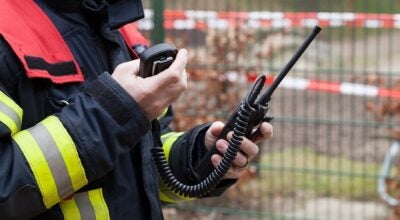Squeaky Wheel Gets The Grease
Published 4:57 pm Tuesday, February 12, 2013
Less than 20 percent of Virginians now live in rural localities, according to a report published by the Center for Rural Virginia in 2010. And, according to the same report, that percentage will likely become even less as population growth in urban and semi-urban areas outpace that of rural areas.
And the struggle to maintain a voice in state legislature is intense, too, according to local delegates.
When asked about the struggle of rural localities to remain relevant in state legislature, Senator Thomas A. Garrett Jr. said, “I will tell you that after political affiliation, by maybe this much [barely holds two fingers apart], the second most likely issue to unite or divide is the urban crescent.”
During January's Cumberland Board of Supervisors meeting, Chairman David Meinhard, District Four, commented, “We're the poor little runts at the trough getting what the urban areas leave for us.”
And Garrett says, “He's dead on right.”
James D. Campbell, executive director of the Virginia Association of Counties, also agrees with the perception of declining relevance for rural localities, “I understand the frustration that Cumberland has and Buckingham. You know, they feel like they are being neglected. And the fact of the matter is, their vote has been diluted over the years.”
Campbell observes, “in the last two or three decades, the shift has gone from the influence of the rural communities to the suburban communities.”
Well over four hundred leaders from localities attended Local Government Day on January 31, an event hosted by the Virginia Association of Counties, the Virginia Municipal League and Virginia Association for Planning District Commissions, according to Campbell. The previous night, over a hundred people attended a dinner just for rural localities.
When asked how rural localities could insure their voice is still heard, Campbell outlined what was shared the previous night during that dinner, “we've got to stick together, because, frankly, the numbers work against us. So, when we have an issue of importance to the rural communities, if we stick together, we can influence.”
When Garrett was asked how rural counties could make sure their voice was being heard, and they weren't just getting the scraps left behind by urban areas, in the words of Meinhard, he had an immediate answer: “You need to squeal loud and run to the trough. You need to be loud.”
Like Campbell, he believes that unity is crucial. He or a staff member always attends the rural caucus, Garrett said.
Referencing the rural/urban tension in the general assembly, he said, “Senator [Phillip P.] Puckett, from far southwest Virginia who caucuses on the other side of the aisle, and I vote the same way a lot of times, because one thing we both know is-and I want a transportation plan. I'm excited about the prospects of a transportation plan-but I don't represent Virginia. I represent the 22nd District. And so, if there is going to be one, then… the people who are going to benefit from it need to be paying at least their share.”
This is an issue that was raised by a delegation from Buckingham County that visited Senator Garrett and Delegate Matt C. Fariss during Local Government Day. They expressed fears that revenue would be taken from local counties only to support optimizing transportation in Northern Virginia.
When pressed for specific advice, Garrett encouraged Board of Supervisors to have sit-downs with his office. He said he had sit-downs with about half of the board of supervisors from his district over the past year.
He mentioned specifically sit-downs with the Town of Farmville, Amherst and Goochland and said he had carried three goals for Goochland this year. When asked by another media source why so many, he said his reply was, “Because they asked.”
Garrett said that it's not just about rural counties working harder, “You need to be louder and more persistent.”
“In this building we count emails, we gauge sentiment based on volume… We are outnumbered, so we're going to have to be more verbal and let them know-them being people who either represent urban/suburban areas or who have a preponderance of urban/suburban interests in their district-that we're there. It is literally the squeaky wheel gets the grease. And we're outnumbered, we need to squeak.”






